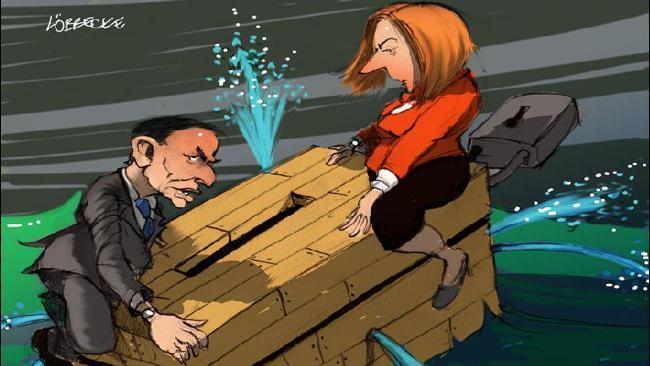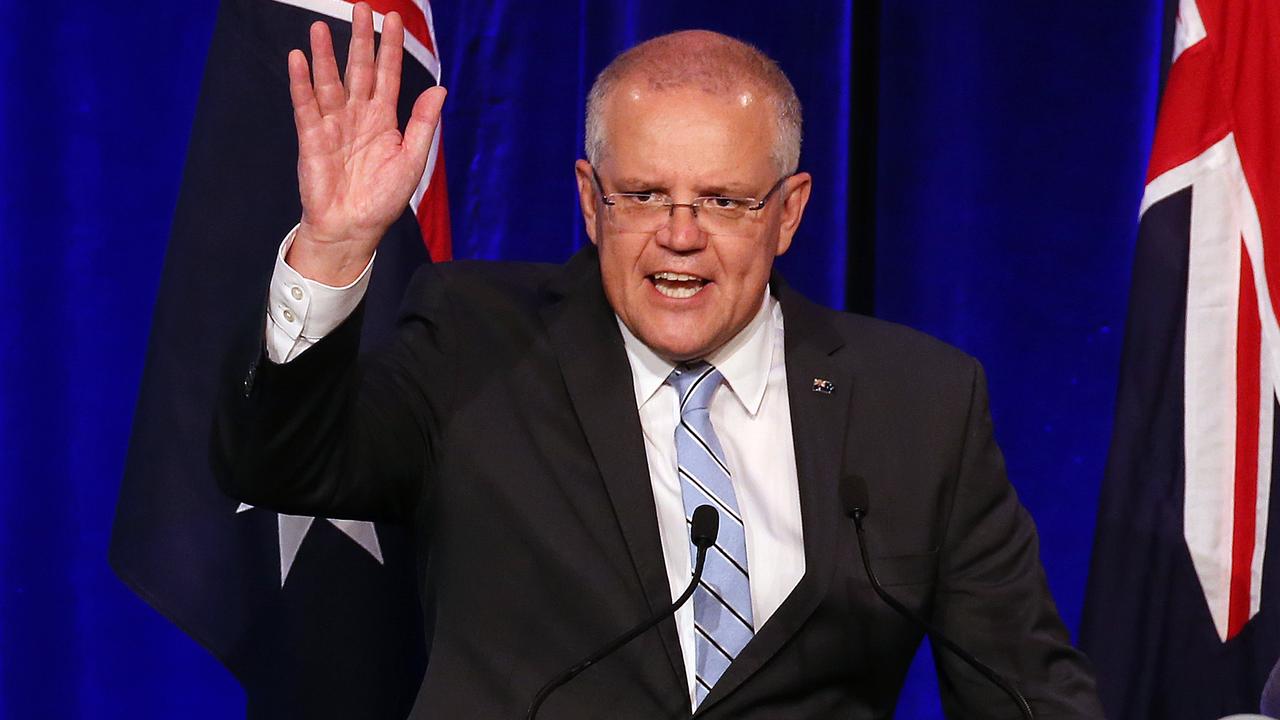
ATTEMPTS by both major parties to rationalise support for offshore processing of asylum-seekers on the grounds that they are saving people from drowning really is a hollow argument.
It takes a micro look at an undeniably macro problem - not the first time our political leaders have done so. It is the worst form of political opportunism I have been forced to witness.
Some commentators have taken great delight in the conversion of one-time advocates of onshore processing to the offshore way of life. To avoid any confusion let me spell out where I stand: I support onshore processing, convinced now more than ever before by the merits of such an approach.
Let's work our way through the various falsehoods used to try to hoodwink people into believing that offshore processing is the best policy approach for the government to take.
Offshore processing is based on a premise that it will stop the boats. We'll see about that. But even if it does "stop the boats", it's not as if asylum-seekers vanish into thin air. The plight of millions of displaced citizens continues, even if our policymakers pretend the problem is solved because it's geographically removed from Australia.
If they aren't coming to Australia by boat, they are making hazardous journeys to other parts of the world. Or sitting in squalor in refugee camps plagued by any number of socially unacceptable living conditions, including sickeningly low life expectancy rates.
Or they are sitting in jails in countries that have not signed on to the relevant UN refugee conventions. Women and children, not just men.
These are the best-case scenarios of what will happen to asylum-seekers who would have tried to come to Australia by boat if not for offshore processing. You rarely hear political leaders acknowledge these realities.
It is true that 4 per cent of asylum-seekers coming to Australia by boat are estimated to have drowned at sea since the Pacific Solution was stopped (with the support of the opposition immigration spokeswoman at the time). But if the boats do continue to come, in spite of offshore processing in Nauru and elsewhere, people will continue to drown at sea, just as they did during the Howard era as well as more recently.
For the 96 per cent who successfully make the often dangerous journey, they will be locked up in detention centres (let's just call them prisons) - women and children, not just men - for an indefinite period of time.
The fact that they will be locked up for years indefinitely is a key part of the policy the "expert committee" has settled on. That's what they deserve, apparently, for "queue jumping".
Anyone who thinks that there is an orderly queue for asylum-seekers wanting safe passage to Australia or anywhere else needs to do a bit more research. The whole definition of being a refugee is that you are displaced and seeking a safe haven. It's not an orderly process.
In other words, the people coming here by boat - whether supported by people-smugglers or not - have a right to do just that under international law.
One of the main arguments used to justify "stopping the boats" is that people should not selectively country hop from Indonesia to Australia when they have already secured safe passage out of their homeland.
That would be a fair point if Indonesia (the country they usually hop here from) had signed on to the UN conventions. But it has not, which means it is under no obligation to treat asylum-seekers appropriately, and it certainly does not. Equally, asylum-seekers are under no obligation to stay in a non-signatory nation which persecutes them. Who would?
Over the past decade, year on year, between 70 and 90 per cent of asylum-seekers coming to Australia by boat have been found to be genuine refugees. Those who are not are sent back, as they should be. Which means that most people locked up indefinitely in an offshore processing centre are going to be genuine refugees, with international legal rights to seek safe haven.
Rights trampled on by Australian politicians more concerned about votes than values.
Speaking of values, if there are cohorts within the major parties that should be especially condemned for supporting offshore processing it's the moderate wing of the Liberal Party (what's left of it), and the Labor Left faction.
My favourite falsehood used as a rationale for offshore processing is that the boats must be stopped because boatpeople are taking places away from innocent refugees suffering in camps in Africa, for example.
You would think it was the boatpeople who write government policy. John Howard changed asylum-seeker laws to couple our humanitarian intake quota with boat arrivals, which means that for every person coming here by boat, there is one less spot available in the quota. But that's a government policy decision. It used not to be that way and it doesn't have to be.
If policymakers are seriously concerned about taking places away from land-locked refugees sitting in camps rather than just using them as a political weapon, decouple the quota. Or don't, because only genuine refugees who come by boat (70-90 per cent of people who do) are ever granted safe haven anyway, so what's the difference?
Arguments to process asylum-seekers offshore have only recently shifted primarily to the virtuous claims of protecting people from the risk of drowning. It used to be primarily about penalising queue jumpers, stopping the hordes of arrivals and protecting Australian sovereignty. Never mind that by international standards arrival numbers are very low and Australian sovereignty has never been at risk.
Another argument used is that because Australia's courts provide asylum-seekers with extra rights of appeal beyond those granted internationally, policymakers need to process them offshore.
How embarrassing it is that Australian politicians hide from Australian law rather than change it. Herein lies the problem with our political class and how it has responded to boatpeople.
If it doesn't like the laws of the land that afford asylum-seekers appeal rights equal to those of Australians, change the laws. If it doesn't like the international responsibilities being a signatory to the UN conventions on refugees requires, rip up the agreement. Then our political leaders could do what they like without being in violation of the very laws they are elected to uphold. I might not agree with their approach - and would continue to argue against it - but I could at least respect it.
Peter van Onselen is a Winthrop professor at the University of Western Australia.



